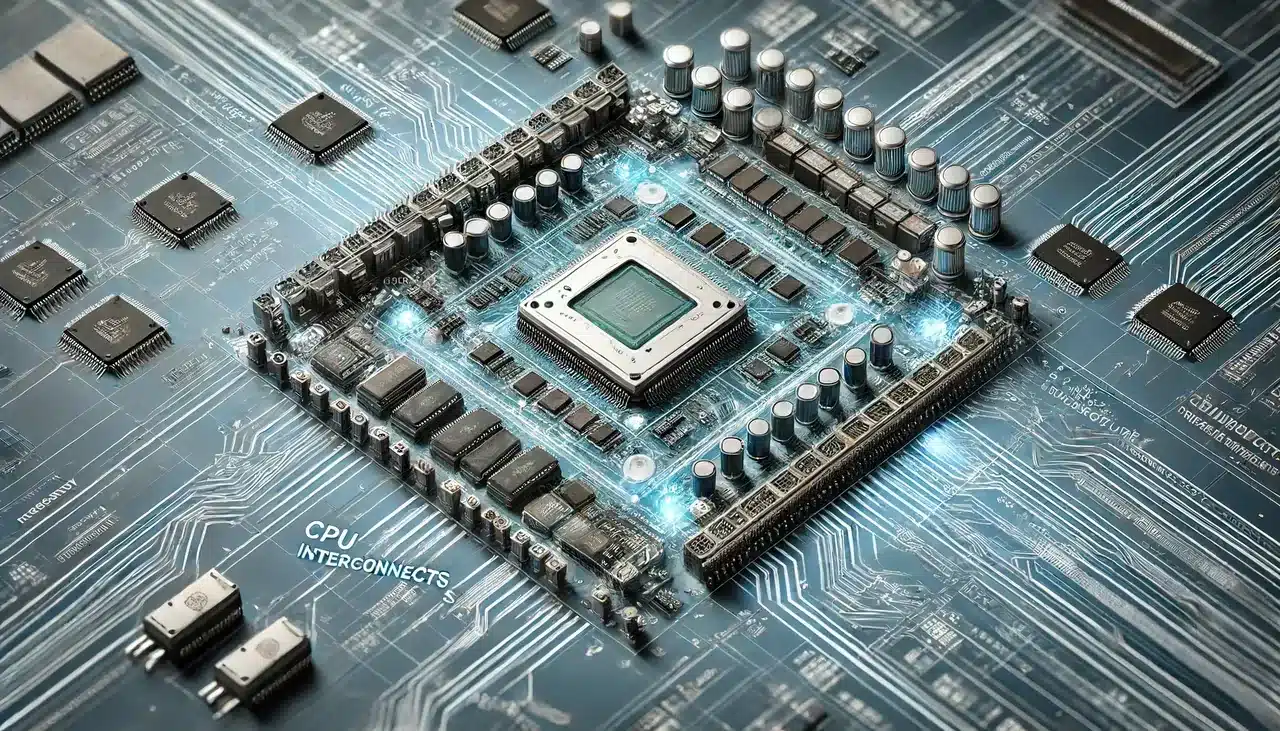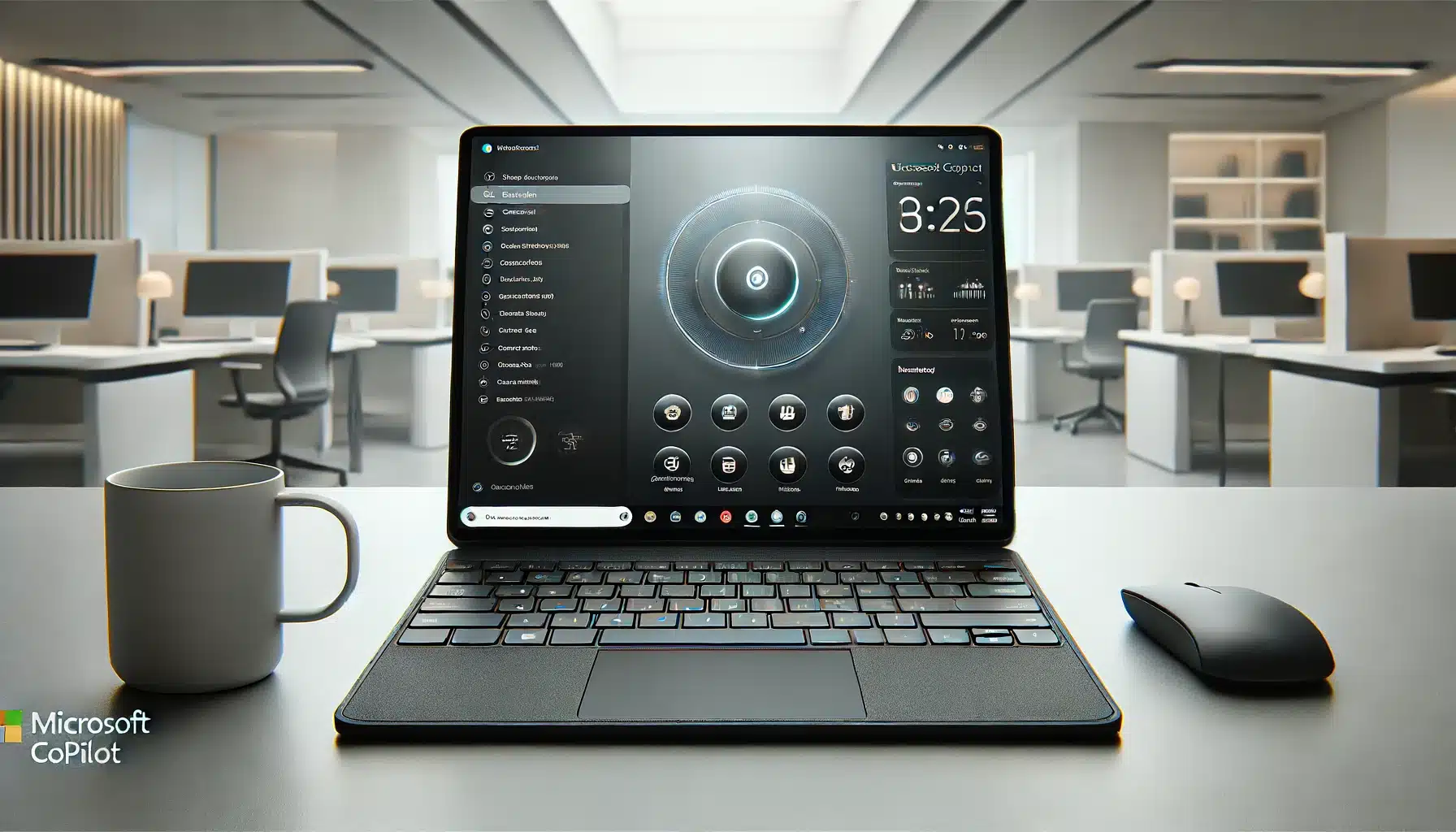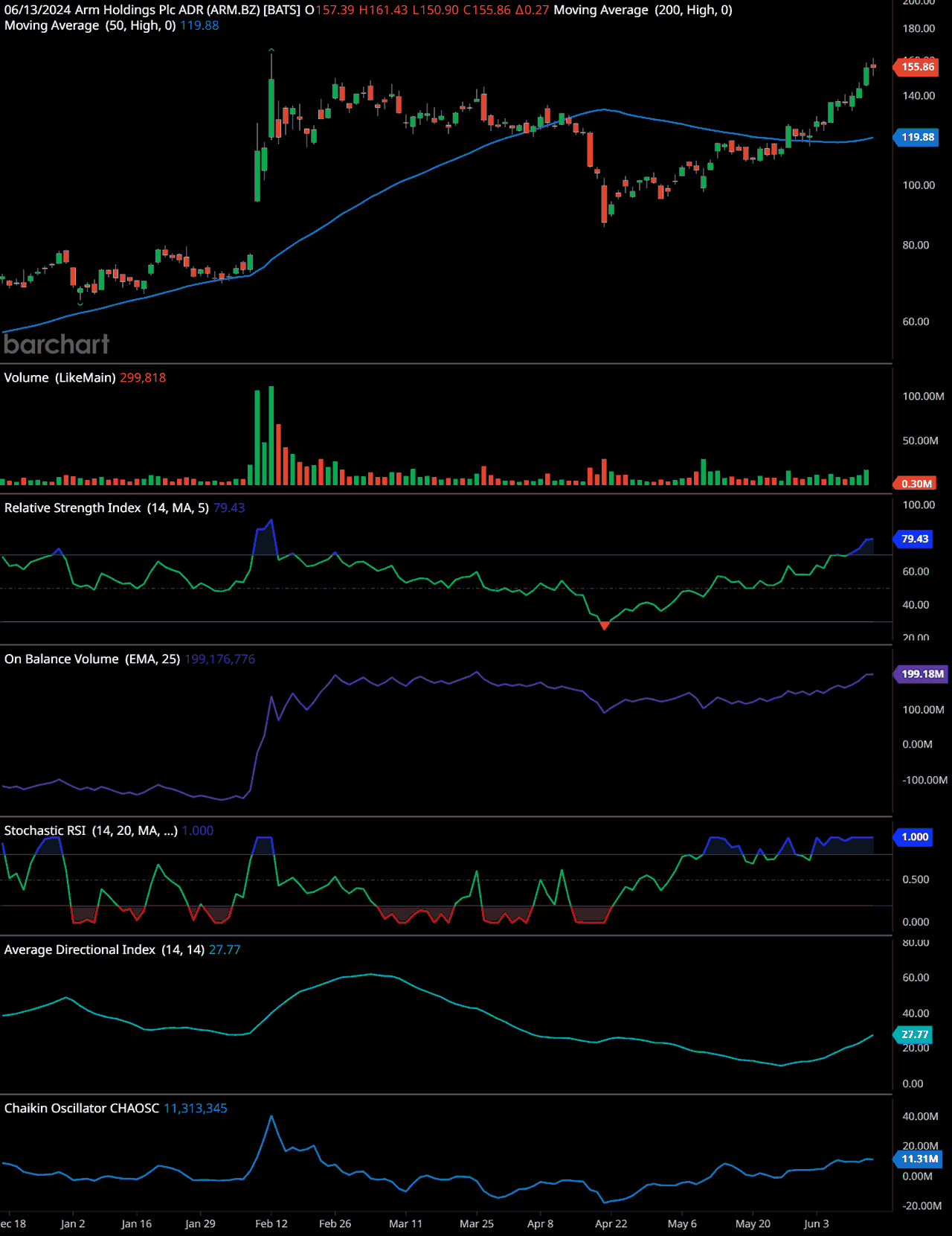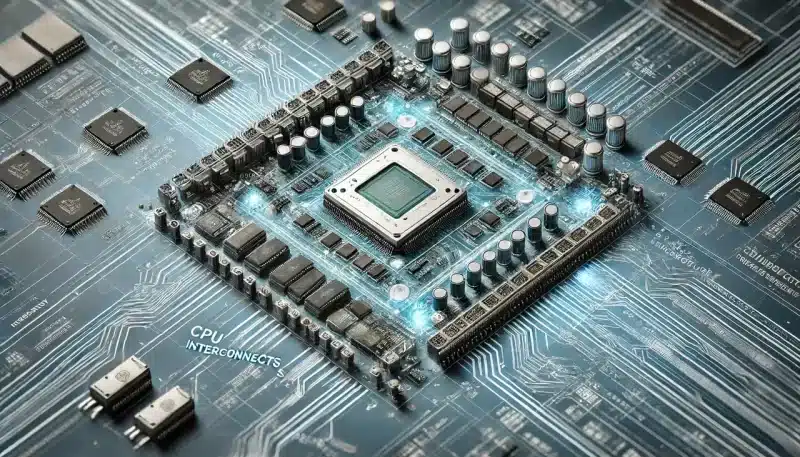A two-year legal conflict between Arm Holdings and Qualcomm poses a significant threat to the launch of new AI-powered personal computers. At the Computex trade show in Taipei, executives from companies like Microsoft, Asus, and Acer promoted AI-driven PCs. However, a contract dispute over chip designs between Arm and Qualcomm could disrupt the release of these devices, expected to be lucrative for Microsoft and its partners. Arm sued Qualcomm over the use of technology acquired from Nuvia, which Arm claims violates licensing agreements. The legal battle, set for trial in December 2024, could halt shipments of the new laptops if Arm wins. Despite the dispute, industry analysts predict a settlement before the trial.

Contract Dispute Casts a Shadow
However, amidst the excitement, a two-year-old legal battle between Arm Holdings and Qualcomm threatens to derail this emerging trend. The dispute centers around the technology and licensing agreements essential for the production of these new laptops. If unresolved, it could halt the shipment of AI-powered PCs, significantly impacting the market.
Stakes for Microsoft and Partners
Microsoft has ambitious plans for these Arm-based laptops, projecting to capture roughly 5% of the market by the end of the year, translating to sales of about 1 to 2 million units. Nearly two dozen models from manufacturers like Microsoft, Dell, and Samsung are set to launch on June 18, 2024. An unfavorable outcome for Qualcomm in this litigation could force a halt in shipments, causing significant disruptions.
The Legal Dispute: Arm vs. Qualcomm
The root of the dispute lies in Arm Holdings’ claim against Qualcomm for not renegotiating a new license after acquiring Nuvia, a company founded by former Apple chip engineers. Arm, which designs the intellectual property used by companies like Apple and Qualcomm to make chips, alleges that Qualcomm is using technology derived from Nuvia’s designs without proper licensing. This technology is integral to Microsoft’s latest AI PC, the Copilot+.

Arm’s Stance
Arm has stated that the designs used in Microsoft’s Copilot+ laptops are direct descendants of Nuvia’s chip designs. They argue that Qualcomm must cease using these designs due to the cancellation of Nuvia’s license. An Arm spokesperson emphasized the need to protect their ecosystem and partners by enforcing Qualcomm’s contractual obligations.
Qualcomm’s Defense
On the other hand, Qualcomm asserts that its broad license for Arm technology already encompasses its PC chips. They maintain that their rights will be upheld in court. Ann Chaplin, Qualcomm’s general counsel, expressed confidence that their established license rights would be affirmed, despite Arm’s claims.
Market Implications
Adding another layer of complexity, Qualcomm’s exclusive deal to supply laptop builders with its chips is set to expire this year. This opens the door for competitors like Nvidia and Advanced Micro Devices (AMD), who are reportedly developing their own chips for Microsoft’s new AI-powered laptops. This potential influx of new players adds pressure to the already tense situation between Arm and Qualcomm.
Industry Reactions and Future Prospects
Despite the public conflict, some investors and analysts remain optimistic that a settlement will be reached before the trial, scheduled to begin in December in a federal court in Delaware. The stakes are high, as both companies stand to lose significant revenue and market share if the dispute disrupts the rollout of AI-powered PCs.
Insights
- Arm Holdings and Qualcomm are in a critical legal dispute over chip design licenses.
- The conflict could delay the release of AI-powered PCs from major tech companies.
- Industry experts believe a settlement is likely before the December trial.
The Essence (80/20)The Origins and Evolution of the 80/20 Principle The Discovery by Vilfredo Pareto In 1897, Italian economist Vilfredo Pareto uncovered a striking pattern in his study of wealth and... More
Core Topics:
- Legal Battle: The dispute between Arm Holdings and Qualcomm over chip licensing.
- Impact on AI-Powered PCs: Potential disruption in the shipment of new AI-driven laptops.
- Market Projections: Microsoft expects significant market share from these devices.
- Industry Reactions: Concerns and speculations from tech executives and analysts.
The Action Plan For Businesses
- Monitor Legal Developments: Stay updated on the Arm-Qualcomm litigation to anticipate potential impacts.
- Contingency Planning: Develop backup strategies for sourcing alternative chips if the dispute escalates.
- Communication Strategy: Prepare clear messaging for stakeholders and customers regarding potential delays.
Blind Spots
- The potential entry of competitors like Nvidia and AMD into the AI-powered PC market could alter the landscape, affecting market share and pricing.
- The market’s readiness for new AI-PCs amidst legal uncertainties and the impact of delayed product launches on consumer trust and market penetration.
ARM Technical Analysis

Price Trend: The stock has been in an upward trend since early May, rising from around $100 to the current level. Before this, the stock experienced a decline from mid-February to early May.
Volume: The trading volume has seen spikes, particularly in early June, indicating increased investor interest during the recent uptrend. The current volume stands at 299,818.
Relative Strength IndexIn the world of technical analysis, the Relative Strength Index (RSI) stands as a cornerstone tool for traders seeking insights into market momentum. Developed by J. Welles Wilder ... More (RSI): The RSI is at 79.43, indicating that the stock is currently overbought. An RSI above 70 typically signals that the stock might be overvalued and due for a pullback.
On Balance VolumeThe On Balance Volume indicator (OBV) is a technical analysis tool used to measure the flow of money into and out of a security over a specified period of time. It is a cumulative ... More (OBV): The OBV shows a steady increase, suggesting that buying pressure has been consistent. The OBV value is at 199,176,776.
Stochastic RSIIn the realm of technical analysis, the Stochastic RSI (StochRSI) emerges as a powerful tool for traders seeking to navigate market dynamics with precision. Developed by Tushar S. ... More: The Stochastic RSI is at 1.000, which is the maximum value, indicating the stock is in an extreme overbought condition. This suggests a potential reversal or pullback may be imminent.
Average Directional IndexThe Average Directional Index (ADX) stands as a cornerstone indicator in the toolkit of technical traders, offering insights into the strength of market trends. Developed by Welles... More (ADX): The ADX is at 27.77, which indicates that the current trend is gaining strength. A value above 20 typically indicates a strengthening trend.
Chaikin OscillatorNamed after its creator Marc Chaikin, the Chaikin Oscillator stands as a formidable tool in the arsenal of technical analysts. This oscillator is designed to measure the accumulati... More: The Chaikin Oscillator is at 11,313,345, indicating strong buying pressure. This oscillator measures the accumulation and distribution of the stock.
Analysis: The stock has shown a strong upward trend recently but is currently in an overbought condition according to the RSI and Stochastic RSI. This suggests a potential short-term pullback. The ADX indicates that the trend is strengthening, which is a positive sign for the medium to long term. The volume and OBV indicate strong buying interest.
Time-Frame Signals:
- 3 Months: Hold. The stock is overbought in the short term, so it might experience a pullback before resuming its upward trend.
- 6 Months: Buy. The strengthening trend and strong buying interest suggest potential for further gains.
- 12 Months: Buy. The stock’s upward momentum and consistent buying pressure indicate a positive long-term outlook.
Remember, past performance is not an indication of future results. Always conduct your own research and consider consulting with a financial advisor before making any investment decisions. 🧡
Looking Ahead
The ongoing legal battle between Arm Holdings and Qualcomm underscores the intricate and often contentious nature of technological advancements. As the tech industry braces for a potential disruption, the outcome of this dispute will likely shape the future of AI-powered personal computers. For now, industry leaders and consumers alike await the resolution of this critical legal showdown, hoping it won’t stall the promising advancements poised to redefine the PC market.
FAQs – AI-Powered PC Legal Battle
Frequently Asked Questions
- 1. What is the main issue in the legal battle between Arm Holdings and Qualcomm?
- The main issue revolves around a contract dispute regarding the licensing of technology that Qualcomm acquired from Nuvia, a company it purchased in 2021. Arm Holdings claims Qualcomm failed to negotiate a new license and is using technology derived from Arm’s designs without proper authorization.
- 2. How might this legal battle affect the shipment of new AI-powered PCs?
- An Arm victory in the litigation could force Qualcomm and its partners, including Microsoft, to halt the shipment of new laptops that are expected to generate significant revenue for the industry.
- 3. What was the focus of the recent Computex trade show in Taipei?
- The recent Computex trade show in Taipei focused on promoting a new generation of AI-powered PCs, with executives from Microsoft, Asus, Acer, and others joining Qualcomm’s CEO on stage to showcase these advancements.
- 4. What are Microsoft’s market projections for the new Arm-based laptops?
- Microsoft projects to capture roughly 5% of the market with the new Arm-based laptops, expecting to sell between 1 million to 2 million units by the end of the year.
- 5. When are the new AI-powered PCs expected to ship to consumers?
- Nearly two dozen models from manufacturers like Microsoft, Dell, and Samsung are expected to ship to consumers on June 18, 2024.
- 6. What is the significance of Qualcomm’s acquisition of Nuvia?
- Qualcomm acquired Nuvia, a company founded by former Apple chip engineers, for $1.4 billion in 2021. The acquisition was significant because Nuvia had plans to design server chips based on Arm licenses, which Qualcomm then redirected to develop laptop processors.
- 7. What is Arm’s position regarding the current design of Microsoft’s Copilot+ laptops?
- Arm claims that the current design for Microsoft’s Copilot+ laptops is a direct technical descendant of Nuvia’s chip and has cancelled the license for these chips, seeking to protect its ecosystem and enforce contractual obligations.
- 8. What is Qualcomm’s stance on Arm’s lawsuit?
- Qualcomm maintains that its broad license for Arm technology covers its PC chips and believes that its rights will be affirmed in court. Qualcomm’s general counsel has stated that the company is confident in its established license rights.
- 9. How does the expiration of Qualcomm’s exclusive chip supply deal impact the market?
- The expiration of Qualcomm’s exclusive deal to supply chips opens the market to competition, with companies like Nvidia and Advanced Micro Devices working on alternative chips for Microsoft’s new AI-powered PCs.
- 10. What is the current public sentiment about the legal dispute between Arm and Qualcomm?
- Despite the public legal battle, some investors and analysts believe that Arm and Qualcomm will likely reach a settlement before the trial, which is scheduled to begin in December in federal court in Delaware.
- 11. Who are some of the key players involved in the development of AI-powered PCs?
- Key players in the development of AI-powered PCs include Microsoft, Asus, Acer, Dell, Samsung, and Qualcomm, among others.
- 12. What is the potential financial impact of the new AI-powered PCs on Microsoft and its partners?
- Industry leaders expect the new AI-powered PCs to generate billions of dollars for Microsoft and its partners, highlighting the significant financial stakes involved in the ongoing legal battle.
💥 GET OUR LATEST CONTENT IN YOUR RSS FEED READER
We are entirely supported by readers like you. Thank you.🧡
This content is provided for informational purposes only and does not constitute financial, investment, tax or legal advice or a recommendation to buy any security or other financial asset. The content is general in nature and does not reflect any individual’s unique personal circumstances. The above content might not be suitable for your particular circumstances. Before making any financial decisions, you should strongly consider seeking advice from your own financial or investment advisor.










